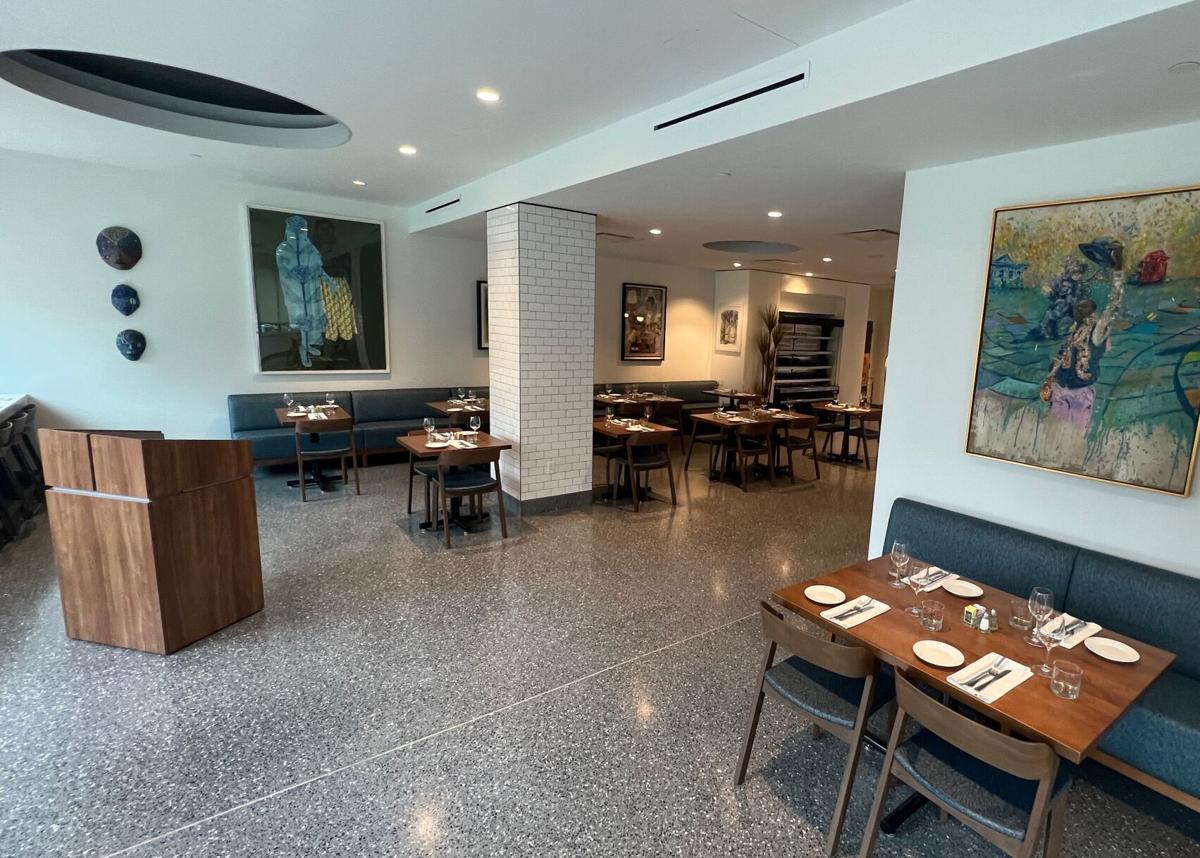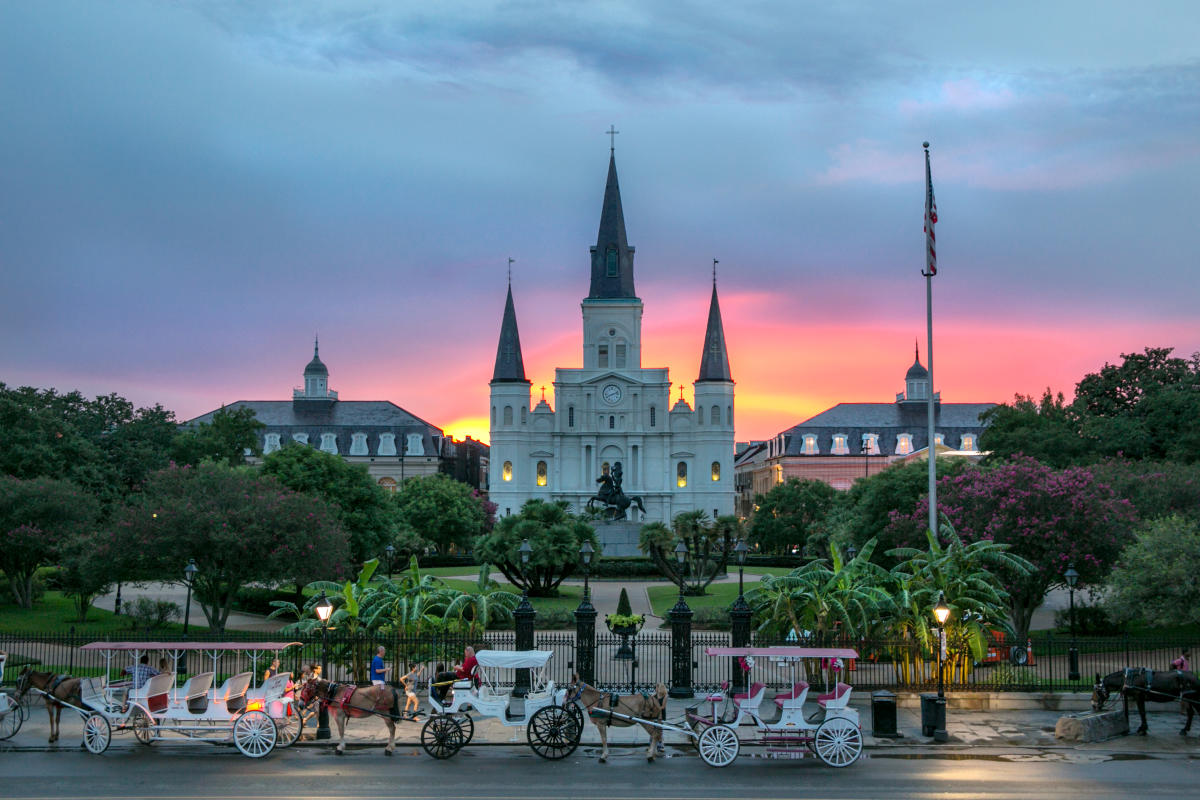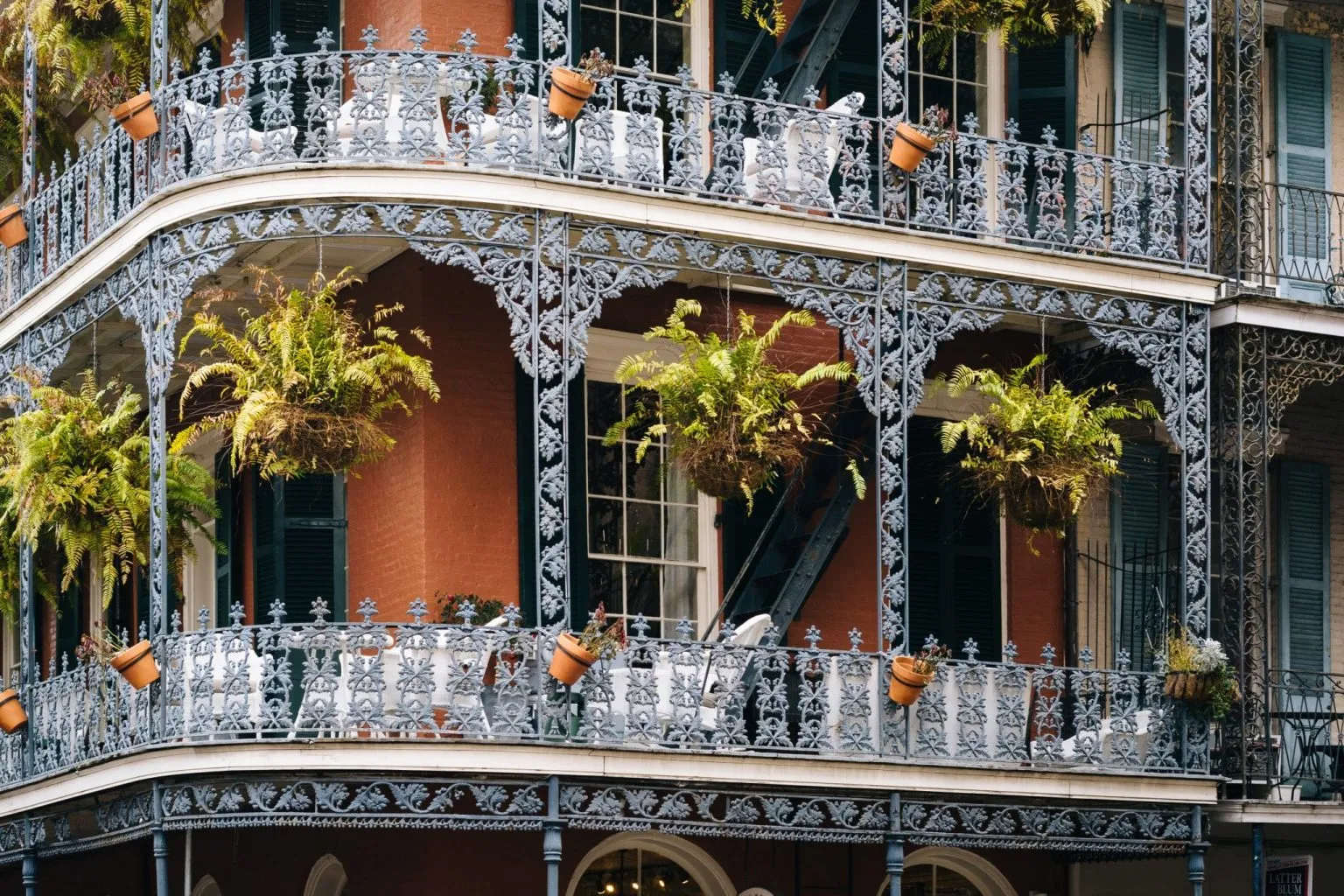Chapter iv new orleans – Chapter IV: New Orleans invites you on an extraordinary journey through the heart of a city renowned for its captivating history, vibrant culture, and indomitable spirit. Immerse yourself in the unique tapestry that has shaped this beloved metropolis, from its humble beginnings to its present-day allure.
New Orleans stands as a testament to the transformative power of human ingenuity and the enduring legacy of diverse influences. Its streets whisper tales of resilience, innovation, and a joie de vivre that permeates every aspect of life in this enchanting city.
New Orleans History and Culture

New Orleans, a vibrant and captivating city in the heart of Louisiana, boasts a rich tapestry of history and culture that has shaped its unique identity. From its humble beginnings as a French colony to its present-day status as a thriving metropolis, New Orleans has witnessed a remarkable journey marked by diverse influences and a resilient spirit.
The city’s distinct culture is a testament to its multifaceted heritage. Music, food, and festivals are deeply ingrained in the fabric of New Orleans society, creating an atmosphere of joy, celebration, and creativity. The city’s renowned jazz scene, with its soulful melodies and improvisational flair, has earned New Orleans global recognition as the “Birthplace of Jazz.”
New Orleans’ architectural landscape is equally captivating, showcasing a blend of French, Spanish, and Creole influences. The historic French Quarter, with its charming courtyards and wrought-iron balconies, transports visitors back in time to the city’s colonial past. Notable landmarks like Jackson Square, St. Louis Cathedral, and Preservation Hall stand as testaments to New Orleans’ rich architectural legacy.
Notable Figures
Throughout its history, New Orleans has been home to an array of notable figures who have left an indelible mark on the city’s cultural and social fabric. Louis Armstrong, the legendary jazz trumpeter, was born and raised in New Orleans, and his music continues to inspire musicians and music lovers worldwide.
Another prominent figure is Marie Laveau, a renowned voodoo priestess who became a symbol of New Orleans’ unique spiritual traditions. Her legacy continues to fascinate and intrigue visitors to this day.
New Orleans Economy and Infrastructure: Chapter Iv New Orleans

New Orleans, Louisiana, is a vibrant city with a rich history and culture. Its unique blend of French, Spanish, and American influences has shaped its economy and infrastructure in distinctive ways.
The city’s economy is primarily driven by tourism, trade, and manufacturing. Tourism is a major economic driver, with millions of visitors flocking to New Orleans each year to experience its world-renowned festivals, music, and cuisine. Trade is also a significant contributor to the city’s economy, with the Port of New Orleans serving as a major gateway for international commerce.
Transportation Systems
New Orleans has a well-developed transportation system that includes a network of highways, railways, and waterways. The city is also home to Louis Armstrong New Orleans International Airport, which offers direct flights to destinations across the United States and abroad.
Utilities
New Orleans has a reliable supply of electricity, natural gas, and water. The city’s utilities are provided by a combination of public and private companies.
Healthcare Facilities
New Orleans has a comprehensive network of healthcare facilities, including hospitals, clinics, and specialized medical centers. The city is also home to several medical research institutions, including the Tulane University School of Medicine and the Louisiana State University Health Sciences Center New Orleans.
Challenges and Opportunities
New Orleans faces a number of challenges in terms of economic development, including poverty, crime, and a lack of affordable housing. However, the city also has a number of opportunities for growth, such as its strategic location on the Gulf of Mexico, its strong cultural heritage, and its growing tourism industry.
New Orleans Society and Demographics

New Orleans is a vibrant and diverse city with a rich history and culture. Its population reflects this diversity, with people from all over the world calling the city home. The city’s largest ethnic groups include African Americans, Whites, Hispanics, and Asians.
New Orleans also has a significant socioeconomic divide, with a large population living in poverty. The city has been plagued by crime and inequality for many years, and these issues continue to challenge its residents.
Education System
The New Orleans public school system has faced numerous challenges in recent years, including underfunding and a lack of resources. Despite these challenges, there are a number of excellent private schools in the city.
Healthcare System, Chapter iv new orleans
New Orleans has a complex healthcare system, with a mix of public and private providers. The city is home to several major hospitals, including the Ochsner Medical Center and the Tulane Medical Center.
Social Services
New Orleans has a wide range of social services available to its residents, including housing assistance, food stamps, and healthcare. The city also has a number of non-profit organizations that provide support to low-income families and individuals.
New Orleans Arts and Culture

New Orleans is renowned for its vibrant arts and culture scene, which has played a significant role in shaping the city’s identity and economy. From its legendary music to its thriving theater and visual arts communities, New Orleans has fostered a rich cultural heritage that continues to inspire and captivate.
Music
New Orleans is widely regarded as the birthplace of jazz music, and its musical traditions have had a profound influence on American popular culture. The city’s unique blend of African, Caribbean, and European influences has given rise to iconic musical genres such as Dixieland, rhythm and blues, and funk. Notable musicians associated with New Orleans include Louis Armstrong, Fats Domino, and Professor Longhair.
Theater
New Orleans has a long and distinguished theater history, dating back to the 18th century. The city is home to several renowned theater companies, including the Tony Award-winning Louisiana Children’s Discovery Center and the nationally recognized New Orleans Opera Association. New Orleans also hosts a number of annual theater festivals, such as the New Orleans Fringe Festival and the Tennessee Williams/New Orleans Literary Festival.
Visual Arts
New Orleans is a vibrant hub for visual arts, with a thriving community of artists and galleries. The city’s unique architectural heritage, including its historic French Quarter and Garden District, provides a backdrop for a diverse range of art forms. New Orleans is also home to several renowned art museums, including the New Orleans Museum of Art and the Ogden Museum of Southern Art.
Literary Tradition
New Orleans has a rich literary tradition, with a number of notable authors calling the city home. William Faulkner, Tennessee Williams, and Anne Rice are among the many writers who have been inspired by the city’s unique atmosphere and culture. New Orleans is also home to several literary festivals, including the New Orleans Book Festival and the Faulkner & Yoknapatawpha Conference.
Role in Identity and Economy
Arts and culture play a vital role in the identity and economy of New Orleans. The city’s vibrant cultural scene attracts tourists from around the world, contributing to its tourism industry. Additionally, the arts provide employment opportunities for artists, musicians, and other cultural workers. New Orleans’ unique cultural heritage is a source of pride for its residents and a key part of what makes the city a special place to live and visit.
Closing Notes

As we conclude our exploration of Chapter IV: New Orleans, we are left with a profound appreciation for the city’s rich tapestry of history, culture, and unwavering spirit. From the vibrant streets of the French Quarter to the soulful melodies of jazz clubs, New Orleans continues to captivate and inspire.
The legacy of New Orleans serves as a reminder of the enduring power of community, the transformative impact of art and culture, and the indomitable spirit that resides within us all. May the lessons learned from this extraordinary city guide and inspire us as we navigate our own paths forward.
FAQ Explained
What is the significance of New Orleans’ history?
New Orleans has a rich and storied history, serving as a major port city, a cultural melting pot, and a hub for trade and commerce. Its unique heritage has shaped its architecture, cuisine, and cultural traditions.
How does New Orleans’ culture set it apart from other cities?
New Orleans is renowned for its vibrant and eclectic culture, influenced by French, Spanish, African, and American traditions. The city is known for its lively music scene, delicious cuisine, and colorful festivals.
What are some of the challenges facing New Orleans?
New Orleans faces challenges such as poverty, crime, and inequality. The city is also vulnerable to natural disasters, such as hurricanes. However, its resilient spirit and strong community bonds have enabled it to overcome adversity.

